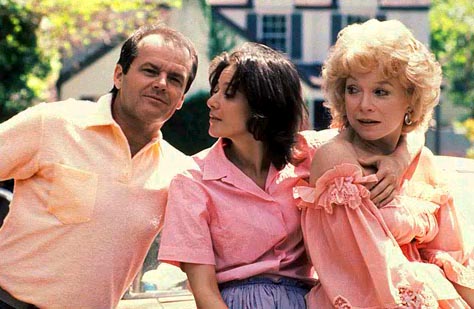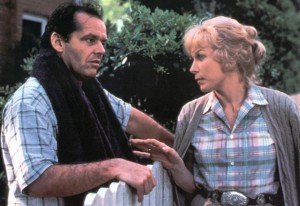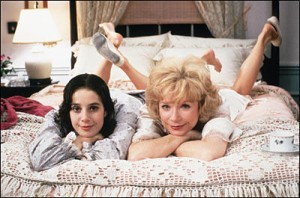In the next several weeks, we will be running reviews of the worst winners of the Best Picture–chronologically.
Hey, don’t get upset! It’s a matter of taste, and we all love some bad movies, not to mention the fact that a flawed picture might still have some good moments, a powerful performance, impressive cinematography, melodic score, stirring visual or sound effects.
The list of mediocre films that have won Best Picture is much longer than the list of bad ones.
Below please find my list of bad winners thus far:
The first bad film to win the Best Picture is Broadway Melody (1929).
The second bad film to win is: Cimarron (1931).
The third bad film to win is: The Great Ziegfeld (1936).
The fourth bad film to win is: Mrs. Miniver (1942).
The fifth bad film to win is: The Greatest Show on Earth (1952).
The sixth bad film to win is: Around the World in 80 Days (1956).
The seventh bad film to win is: Kramer Vs. Kramer (1979).
The eighth bad film to win is: Terms of Endearment (1983).
Blending comedy and melodrama, Terms of Endearment was basically a TV sitcom/soap expanded to the format of feature-length big-screen entertainment.

Our Grade: B (*** out of *****)
In its sentimental tone and traditional view of women, Terms of Endearment resembles many old-fashioned, well-made TV Movies of the Week.
However, audiences seemed to enjoy the ups and downs but always loving relationship between a possessive mother (Shirley MacLaine) and her daughter, Emma (Debra Winger).
 Especially amusing are romantic and sexual interludes between MacLaine’s middleaged widow and her boozy exastronaut neighbor, played by Jack Nicholson, who won his second Oscar, this time as Supporting Actor.
Especially amusing are romantic and sexual interludes between MacLaine’s middleaged widow and her boozy exastronaut neighbor, played by Jack Nicholson, who won his second Oscar, this time as Supporting Actor.
The film’s view of middle-age sexuality, expressed in the way that Nicholson courted MacLaine, was both charming and embarrassing.
Released at a time when most mainstream Hollywood movies were either action-adventures, sci-fi, or teenage fare might explain the acclaim accorded to Brooks by the Academy voters and the film’s huge commercial appeal, released in time for the holidays season.
Detailed Plot
Aurora Greenway (MacLaine) lives with her daughter Emma (Winger). In Emma’s childhood, Aurora proves to be an overbearing mother, climbing into Emma’s crib to make sure she is breathing; she is only reassured that everything is O.K., when Emma begins crying.
 After the death of Aurora’s husband Rudyard (Brooks), Aurora and Emma develop an intimate love-hate mother-daughter relationship.
After the death of Aurora’s husband Rudyard (Brooks), Aurora and Emma develop an intimate love-hate mother-daughter relationship.
The story then follows both women through the years as each seeks happiness and love, experiencing her ups and downs.
Upon graduation from high school in Houston, Emma gets married to Flap Horton (Jeff Daniels)–the disapproving Aurora shuns the wedding. Meanwhile, Emma’s best friend Patsy Clark (Lisa Hart Caroll) attends college and becomes successful and rich in New York
In due time, Flap becomes a college professor in Des Moines, Iowa, which separates the family from Emma’s mom. While pregnant with their third child, Emma asks for money, but Aurora suggests an abortion.
Soon, Emma’s marriage to Flap becomes strained due to his cheating, encouraging her to embark on an illicit affair with an older married banker, Sam Burns (John Lithgow).
Unfazed by age, the celibate Aurora is attracted to her next-door neighbor of 15 years, a womanizing, alcoholic retired astronaut named Garrett Breedlove (Jack Nicholson). Aurora and Garrett eventually go on a date, make love, and develop a relationship.
 Emma returns to her mother’s home in Houston after discovering that her husband is having an affair with his student, Janice (Kate Charleson). Emma’s presence with three children makes Garrett, a single man for a long time, uncomfortable.
Emma returns to her mother’s home in Houston after discovering that her husband is having an affair with his student, Janice (Kate Charleson). Emma’s presence with three children makes Garrett, a single man for a long time, uncomfortable.
After Flap calls, Emma returns home to Iowa, trying to reconcile. For his part, unwilling to commit, Garrett breaks up with Aurora.
Emma ends up her relationship with Sam, when Flap accepts a teaching position in Kearney, Nebraska, but upon relocation, she discovers that Janice is attending the same college where Flap now works.
Following the conventions of a soap opera, Emma confronts Janice before taking daughter Melanie to the doctor for flu shots. Emma’s doctor notices some lumps under Emma’s armpit, and after a biopsy, he diagnosed her with cancer.
Patsy invites Emma to New York City for what would be her first vacation without the children. However, shortly after arriving, Emma feels out-of-place and returns home.
The treatment and drugs are not effective and Emma’s situation worsens. Flap and Aurora remain by Emma’s bedside in the hospital. Although devastated and exhausted, Aurora is still very supportive and loving towards Emma. Garrett arrives in Lincoln, Nebraska, and now in a more sensitive mode, he declares his love for Aurora.
 In the hospital cafeteria, Aurora asks Flap to let her raise her grandchildren. Patsy, who has no children of her own, wants to adopt Melanie, but Flap and Emma do not want to separate their kids.
In the hospital cafeteria, Aurora asks Flap to let her raise her grandchildren. Patsy, who has no children of her own, wants to adopt Melanie, but Flap and Emma do not want to separate their kids.
Flap, feeling a failure as father and husband, lets them live with Aurora.
Emma’s eldest son Tommy (Troy Bishop) is resentful toward his mother due to class inferiority and feelings of being unloved. Emma reassures her two sons, and, after an altercation with Aurora, who slaps him for criticizing his mother, Tommy weeps in his grandmother’s arms.
After the funeral, Emma’s friends gather for a memorial service. Garrett shows affection toward Emma’s children, helping Tommy cope during the wake. The film end with Aurora and Melanie together.
Cast
Emma Horton (Debra Winger)
Aurora Greenway (Shirley MacLaine)
Garrett Breedlove (Jack Nicholson)
Vernon Dahlart (Danny DeVito)
Flap Horton (Jeff Daniels)
Sam Burns (John Lithgow)
Rosie (Betty King)
Patsy Clark (Lisa Hart Carroll)
Toddy (Huckleberry Fox)
Melanie (Megan Morris)
Credits
Paramount Release
Running time: 130 Minutes
Oscar nominations: 11
Picture, produced by James L. Brooks
Director: James L. Brooks
Screenplay (Adapted): James L. Brooks
Actress: Shirley MacLaine
Actress: Debra Winger
Supporting Actor: Jack Nicholson
Supporting Actor: John Lithgow
Art direction-set decoration: Polly Platt and Harold Michelson; Tom Pedigo and Anthony Mondello
Film Editing: Richard Marks
Sound: Donald O. Mitchell, Rick Kline, Kevin O’Connell, and James Alexander
Original Score: Michael Gore
Oscar awards: 5
Picture
Director
Screenplay
Actress: MacLaine
Supporting Actor: Nicholson
Oscar Context
Artistically, 1983 was one of the weakest years in Oscar’s history. The most nominated film, Terms of Endearment received five Oscars out of its 11 nominations.
It bears the distinction of being one of the few films in Oscar’s annals, in which two actresses, MacLaine and Winger, were nominated in the lead category. Other such films include the superb 1950 satire, “All About Eve,” with Bette Davis and Anne Baxter, and the 1977 old-fashioned melodrama, “The Turning Point,” with MacLaine and Anne Bancroft.
Its major competitor was Philip Kaufman’s action-adventure “The Right Stuff,” which won four technical wards out of its eight nominations.
The three other contenders were smaller in scale, more intimate, well acted melodramas, “The Big Chill” (all-star ensemble, headed by Glenn Close), “The Dresser” (with Albert Finney and Tom Courtenay) and “Tender Mercies” (starring Robert Duvall in his Oscar winning performance)
Of the five Best Picture nominees, “The Right Stuff” was by far the most interesting. It’s plausible to assume that its cynical tone toward its heroes might have taken a toll with Oscar voters as well as mainstream viewers as the movie was commercially disappointing.











